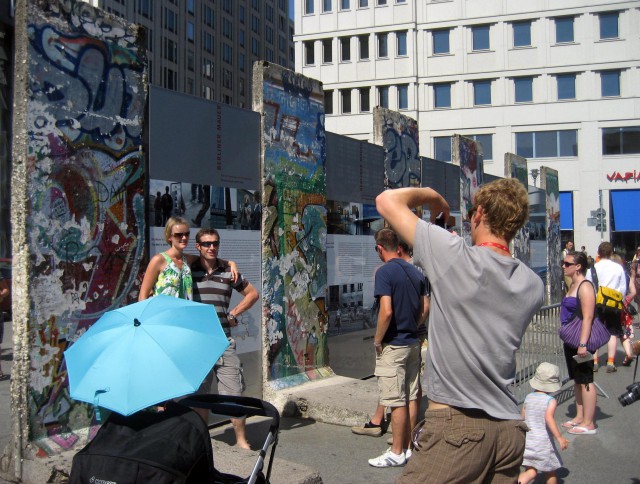
As we commemorate the 20th anniversary of the fall of the
Berlin Wall, it’s time to take stock.
The Berlin Wall was one of the shameful symbols of the Cold
War and the dangerous division of the world into opposing blocks and spheres of
influence.
Many politicians of my generation sincerely believed that
with the end of the Cold War, humankind could finally forget the absurdity of
the arms race, dispense with dangerous regional conflicts, abandon sterile
ideological disputes and enter a golden century of collective security.
We hoped we would see the rational use of material
resources, the end of poverty and inequality, and the restoration of harmony
with nature.
Alas, over the last few decades the world has not become a
fairer place: Disparities between the rich and poor have either remained or
increased not only between the North and the developing South but also within
developed countries themselves.
The social problems in Russia, as in other post-communist
countries, are proof that simply abandoning the flawed model of a centralized
economy and bureaucratic planning is not enough and guarantees neither a
country’s global competitiveness nor respect for the principles of social
justice nor a dignified standard of living for the population.
While we politicians from the last century can be proud of
the fact that we avoided the danger of a thermonuclear war, for many millions
of people around the globe the world has not become a safer place. Quite to the
contrary, innumerable local conflicts and ethnic and religious wars, along with
terrorism, have appeared like a curse on the new map of world politics,
creating large numbers of victims.
The new generation of politicians is acting irresponsibly.
Defense spending by numerous large and small countries alike is now greater
than during the Cold War. Strong-arm tactics are once again the standard way of
dealing with conflicts. Weapons of mass destruction are proliferating, and the
erstwhile adversaries of the Cold War still compete to reach new technological
levels in arms production.
Looking back, one real achievement we can celebrate is the
fact that the 20th century marked the end of totalitarian ideologies, in
particular those that were based on utopian beliefs.
Yet new ideologies are quickly replacing the old ones. Many
now forget that the fall of the Berlin Wall was not the cause of global changes
but to a great extent the consequence of deep, popular reform movements that
started in the East — in the Soviet Union, in particular.
After decades of the Bolshevik experiment and the
realization that this had led Soviet society down a historical blind alley, a
strong impulse for democratic reform evolved in the form of Soviet Perestroika,
which was also available to the countries of Eastern Europe.
But it soon became very clear that Western capitalism, too,
deprived of its old adversary and imagining itself the undisputed victor and
incarnation of global progress, was at the risk of leading Western society and
the rest of the world down another historical blind alley.
Today’s global economic crisis has revealed the organic
defects of the present model of Western development that was imposed on the
rest of the world as the only one possible. It has showed that not only
bureaucratic socialism but also capitalism is in need of profound democratic
reform — in effect, its own kind of perestroika.
One other truth has emerged since the fall of the Berlin
Wall: global interdependence. In effect, humankind has started to transform
itself into a single civilization.
This opens up possibilities. While we sit among the ruins of
the old order, we can think of ourselves as active participants in the process
of creating a safer, fairer and more democratic world.
Mikhail Gorbachev, leader of the Soviet Union from 1985
to 1991 and 1990 Nobel Peace Prize recipient, is president of the World
Political Forum. This piece was distributed by the IPS Columnist Service and
Progressive Media Project. Readers may write to him at Progressive Media
Project, 409 East Main Street, Madison, Wis. 53703; e-mail: [email protected]; Web site: www.progressive.org. For information on
PMP’s funding, please visit http://www.progressive.org/pmpabout.html#anchorsupport.
Via McClatchy-Tribune News Service.














